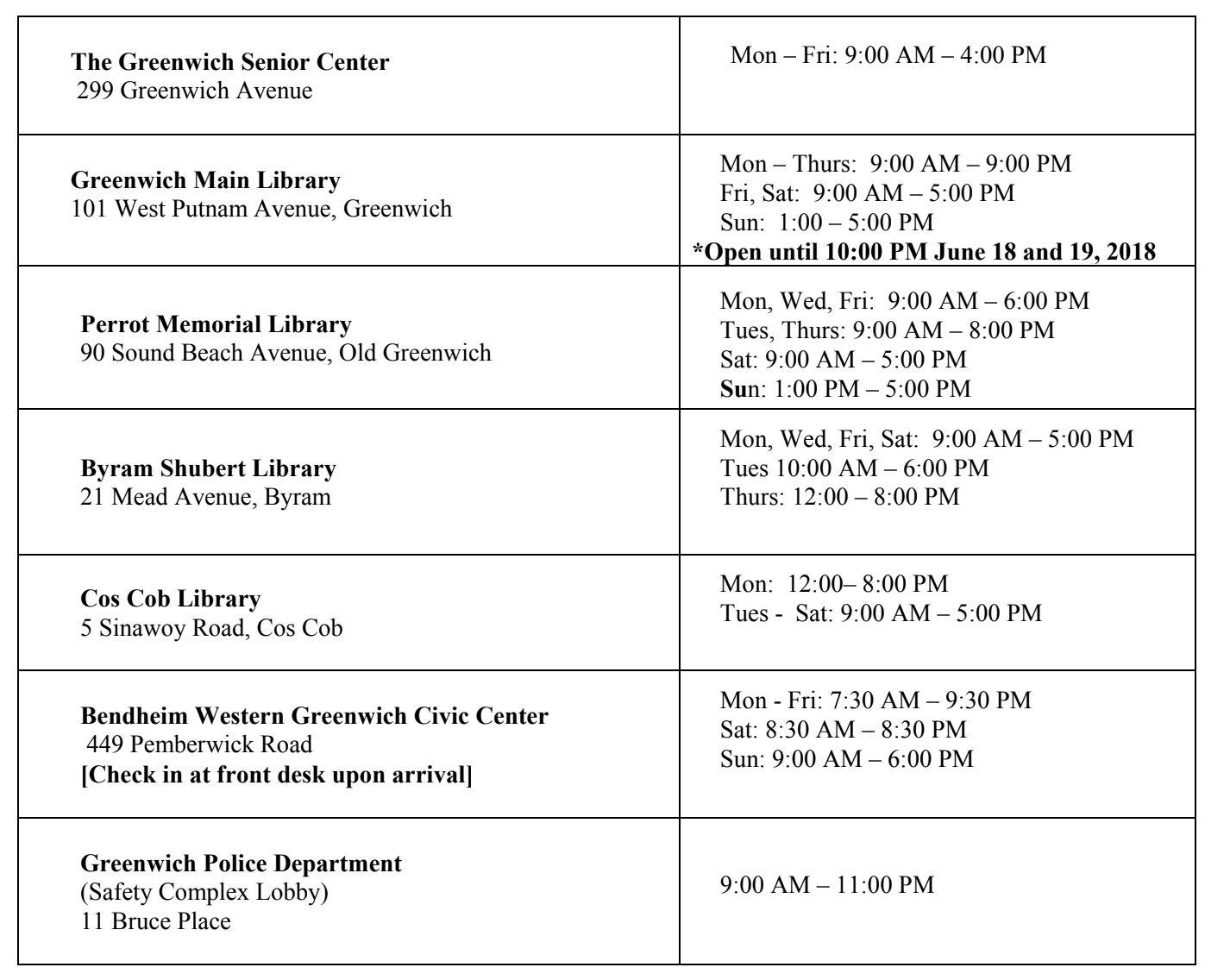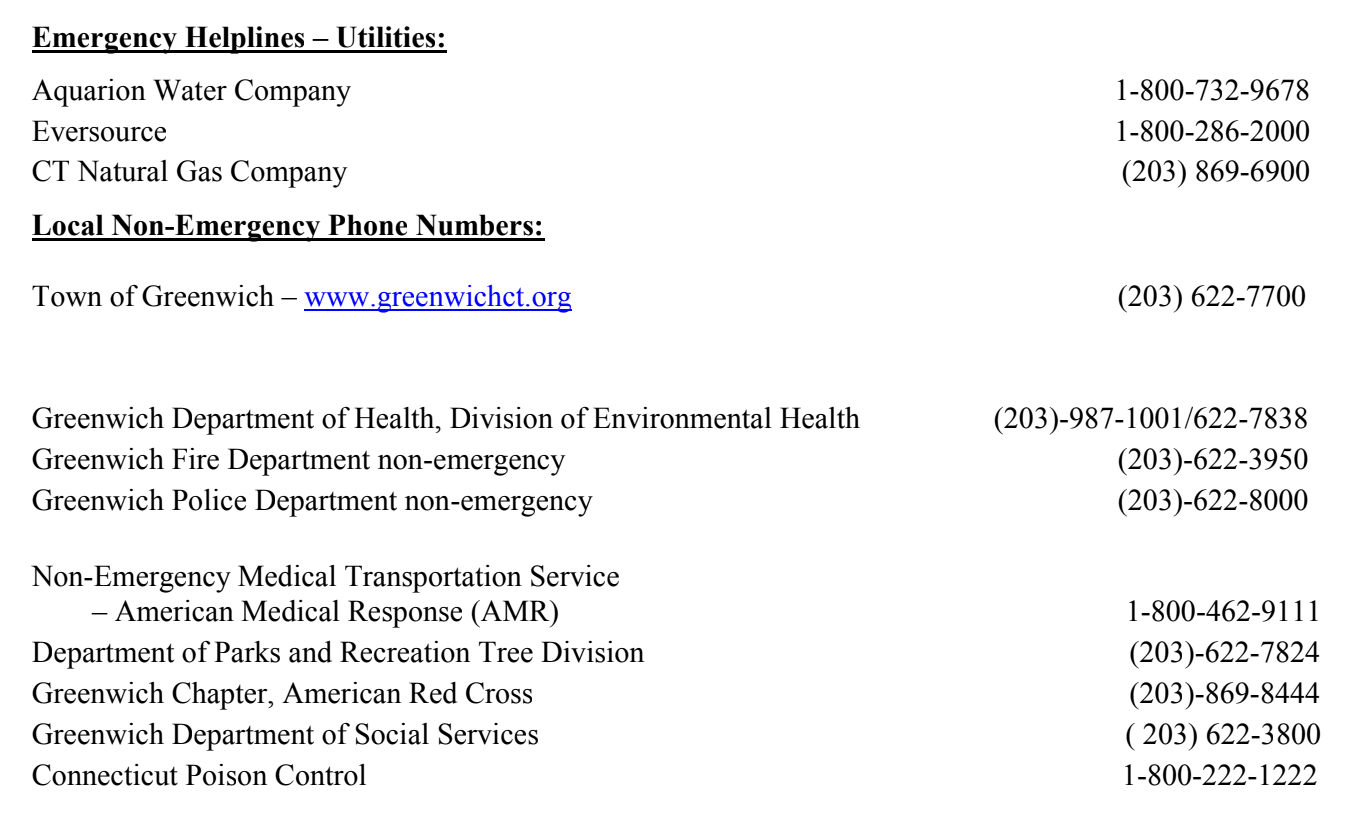 For the next few days Connecticut will experience dangerous heat and humidity conditions.
For the next few days Connecticut will experience dangerous heat and humidity conditions.
At times the temperature will feel over 100°.
Because of this, the Greenwich Department of Health notes that heat-related illnesses are a Public Health threat. All residents, especially persons who are young, elderly, have medical or mental health conditions, use medications that impede body temperature regulation, those who do not have air conditioning, those whose work requires outdoor activities and people who are socially isolated are encouraged to pay special attention to the weather.
Staying healthy during excessive heat wave is important. Therefore, these common-sense practices listed below should be followed along with knowing about heat related illnesses.
• Keep children and pets inside, except for brief stays outdoors. Always avoid direct sunlight exposure and give pets plenty of water to drink
• Never leave any person or pet in a parked vehicle even if the windows are open
• Don’t leave food items in the car or outdoors – food spoils quickly
• If you don’t have to go out, stay indoors. Spend time in air-conditioning if possible. Electric fans may provide some comfort and exhaust air from rooms but they will not prevent heat related illness. Taking a cool shower, bath or moving into an air conditioned space to cool off is a better option.
• Avoid strenuous activities as much as possible. Early morning and evening hours are best if you must exercise otherwise, take it easy
• Drink plenty of fluids regardless of your activity. Avoid drinks with caffeine, alcohol or those with large amounts of sugar and salt. Those who are on a restricted fluid intake should check with their physician
• Wear lightweight, light colored and loose fitting clothing
• Eat light, cool, easy to digest foods
• Rest often in shady areas, especially if you are working outdoors
• Wear a wide brimmed hat, if possible, sunglasses and apply sunscreen with UV protection of 15 or higher when going outdoors. Always follow the manufacturer’s directions.
• Visit or regularly check on:
– infants and young children
– people over age 65 and frail elderly
– those who have a medical condition (such as diabetes, cardiovascular disease,
respiratory disease, obesity, high blood pressure, liver disease, kidney disease) or mental illness (cognitive and psychiatric disorders)
Medical Conditions Attributable to Excessive Heat Exposure
Knowing the signs and symptoms of a heat-related illness could save a life – yours or someone else’s.
• Heat stroke – Heat stroke is a severe medical emergency. Call for emergency medical assistance immediately by dialing 9-1-1. If possible, move the person into a cool or air-conditioned environment. Signs of heat stroke may include headache, confusion, nausea, dizziness, high body temperature, difficulty breathing, rapid and strong pulse. Skin may be hot and dry or the person
may be sweating. Reduce body temperature with air-conditioning, fanning, water sponging and remove clothing if necessary. Avoid giving fluids.
• Heat exhaustion – This condition will give rise to heavy sweating, weakness and cool, pale clammy skin. The person may experience muscle cramps, dizziness, fainting, nausea and vomiting. Although body temperature may be normal there will be a weak pulse. Move the person out of the sun into a cool environment and apply a cool wet cloth while they are lying down. Give sips of water until feeling better, however if vomiting continues, seek immediate medical attention.
• Heat cramps – This condition will give rise to painful cramps and muscle spasms in the legs or abdomen. Heavy sweating may also be present. Move the person out of the heat into a cool environment and gently massage the cramping muscle. Give sips of water unless nausea occurs or there are fluid restrictions.
Heat related illness and death can be preventable by knowing the symptoms and risk factors that contribute to them. Spending a few hours in an air conditioned location can help your body stay cooler.
Residents can go to the following air conditioned locations to read, sit quietly and charge their cell phones:

Residents can also visit friends or family members who have air conditioning, visit shopping malls or go to the movies in order to cool off.
For more information, contact the Greenwich Department of Health by calling (203) 622-7836.
